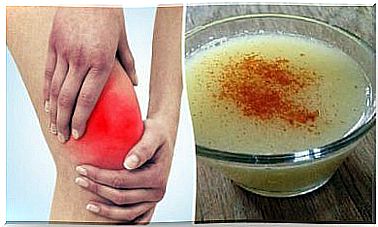Licorice Root For Healthy Digestion
Licorice is used in natural medicine to support digestive problems. But it is not always recommended. Find out interesting facts about this natural remedy today.

The licorice root (Glycyrrhiza glabra) is a natural remedy that is used since ancient times for various ailments. The food industry also uses the characteristic sweet taste of this plant, which also improves the taste in some medicinal products.
Licorice root, also known as licorice root, is also suitable for tea and is available in the form of capsules or extract. Some use this medicinal plant for digestive problems, menopause, infections or other health problems.
But is this medicinal plant safe to use? Is there any scientific evidence of their beneficial properties? The scientific evidence is still insufficient to use the licorice root in the treatment of diseases. However, the results of various studies have shown its usefulness as a supportive remedy for digestive problems.
Properties of licorice root
We then take a closer look at the various properties of the licorice root. An article published in Acta Pharmaceutica Sinica B shows that this plant has over 20 different triterpenes and nearly 300 flavonoids that could explain its pharmacological properties.
In general, liquorice root is said to have the following properties:
- antiviral
- antimicrobial
- antioxidant
- anti-inflammatory
The scientific evidence is still limited and further studies are needed. However, various researches suggest that licorice root could have promising effects that could be of interest for inexpensive and effective drugs in the future.

Can the licorice root soothe the stomach?
Various substances found in licorice root, such as flavonoids, can reduce swelling and relieve gastrointestinal problems. Although this has not yet been definitively confirmed scientifically, there are some very interesting findings.
For example, a double-blind study published in the journal Evidence Based Complementary and Alternative Medicine shows that an extract with glabridin and glabren (flavonoids contained in licorice root) can be useful for stomach discomfort, nausea, and abdominal pain and acid treat.
A revision published in the journal Phytotherapy Research describes that glycyrrhizic acid, found in licorice root, has anti-inflammatory and immune-stimulating properties. These are helpful in the fight against the H. pylory bacterium, a microorganism that can cause various digestive problems such as stomach ulcers.
This was also confirmed in a clinical trial reported in The Brazilian Journal of Infectious Diseases . 120 of the participants reported on the positive effects of licorice root (in addition to the usual therapy) in the fight against H. pylori.
Is this medicinal plant safe?
Before using licorice root for digestive problems, you should seek advice from your doctor to be on the safe side. The expert can also inform you about possible contraindications or drug interactions.
Information from the National Center for Complementary and Integrative Health (NCCIH) shows that licorice root should never be consumed in excess or over a long period of time. This could lead to high blood pressure and low potassium levels, which in turn increases the risk of heart disease and muscle ailments.
Pregnant women must refrain from consuming liquorice root. Concomitant use with diuretic medication could also be harmful to the heart. Other possible interactions may occur in combination with the following drugs:
- Medicines to regulate the heart’s rhythm
- Medicines to lower potassium
- Anticoagulants such as warfarin
- Estrogens, hormone therapy, and oral contraceptives
- Corticosteroids

How can you use licorice root for stomach upsets?
This medicinal plant is available in different formats: chewable tablets, liquid extract, capsules, powder or dried for teas. Many choose the natural, dried form to make tea with. However, it is always important to only take the licorice root for a short period of time and in modest amounts to avoid undesirable side effects.
Liquid liquorice extract, which can be consumed in combination with a natural drink or with water, is usually recommended for stomach pains. You can also put a few drops under your tongue to relieve heartburn, for example.
Remember, however, that this is by no means a first-line treatment to cure stomach disorders. You absolutely have to get a medical examination and advice!









